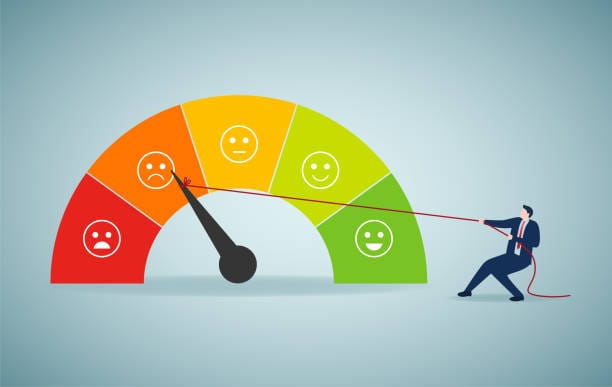Build CIBIL Score from Zero: A Beginner’s Guide to Establishing Credit in India

A credit score is a crucial financial metric that determines your ability to borrow money, get approved for credit cards, and secure favourable interest rates. If you have no credit history, building your CIBIL score from zero can feel challenging. But with the right strategies and tools, including GoodScore’s credit health check, it’s absolutely doable. In this beginner’s guide, we’ll explore how to get a credit history, the fastest way to increase your CIBIL score, and maintain strong credit health over time.
Understanding Credit Score Basics
A CIBIL score is a three-digit number between 300 and 900 that indicates your creditworthiness. A 750+ credit score is considered excellent, and having one improves your financial credibility. Whether you’re applying for your first credit card for beginners or aiming for a premium credit card, your score determines access, rates, and limits.
Why a High Credit Score is Important
- Easier Loan Approvals: Lenders prefer individuals with a 750+ credit score.
- Lower Interest Rates: A good score reduces your overall borrowing cost.
- Better Credit Card Limits: Higher scores lead to access to premium credit cards.
- Improved Financial Opportunities: Strong credit health opens doors to bigger loans and flexible repayment plans.
Steps to Build Your CIBIL Score from Zero
1. Get a Credit Card and Use It Wisely
One of the fastest ways to increase CIBIL score is by getting a credit card and using it responsibly. If you’re new to credit:
Start with these options:
- Secured Credit Cards in India: These are backed by a fixed deposit and are perfect for those with no credit history.
- First Credit Card for Beginners: Many banks offer credit cards tailored for students or first-time borrowers.
Key tips:
- Pay your credit card bill in full each month.
- Keep your credit utilisation below 30%.
- Never miss a payment.
2. Apply for a Small Loan and Build Repayment History
Taking a small personal or consumer durable loan can help you and improve your CIBIL score. Here’s how:
- Choose a low amount to start with.
- Pay EMIs on time—this positively impacts your payment history.
- Avoid missing payments or overborrowing.
3. Monitor Your Credit Report Frequently
Your credit report holds valuable information about your credit behaviour. Monitoring it regularly is essential to track your progress as you build your a to:
- Spot errors that may be dragging your score down.
- Track how your habits impact your score.
- Learn personalised ways to boost your credit health.
4. Maintain Low Credit utilisation
Credit utilisation is the percentage of your credit limit that you use. To build a high score:
- Stay under 30% of your available credit.
- Make small payments throughout the month if needed.
- Don’t max out your card—even if you pay it off later.
5. Pay All Bills on Time
This includes not just credit card bills but also utility payments, subscriptions, and rent. Consistent payments reflect financial responsibility.
Pro Tips:
- Set reminders for every bill.
- Automate recurring payments when possible.
- Use apps or GoodScore reminders to stay ahead.
6. Avoid Multiple Loan and Credit Card Applications
Each application triggers a hard inquiry, which may slightly drop your score.
- Apply only when you truly need it.
- Space out applications over time.
- Use eligibility checkers before applying.
How a Good Credit Score Impacts Loans
When you build your CIBIL score from zero, you unlock better loan options:
- Lower interest rates
- Higher approval chances
- More flexible repayment plans
A strong credit score isn’t just about borrowing—it’s about control over your financial future.
Maintaining a High CIBIL Score After Building It
Once your score improves, it’s vital to keep it high:
- Continue to pay EMIs and credit card bills on time.
- Maintain low credit utilisation.
- Regularly check your report for updates or errors.
- Keep a balanced mix of credit—cards and loans.
- Don’t close your oldest accounts (they help your credit history length).
How a 750+ Credit Score Helps with Credit Card Approvals
When applying for new cards:
- A 750+ score unlocks premium cards.
- You’ll enjoy higher limits, cashback offers, and better rewards.
- Many travel, lifestyle, and shopping perks become accessible.
Best Practices to Sustain Credit Health
Here are some tips that you can use to maintain your credit score:
- Automate your bill and EMI payments.
- Reduce balances before applying for new credit.
- Stay updated on banking and RBI credit rules.
- Avoid unnecessary debt.
- Maintain long-standing accounts to strengthen your profile.
Conclusion
Building your CIBIL score from zero is a journey that requires discipline and informed decisions. By starting with a secured credit card, managing your credit utilisation, and making timely payments, you set the stage for a strong credit profile.
Ready to boost your credit score? Download the GoodScore app today!
FAQs
1. How can I build credit from zero?
A: Start with a secured credit card, use it responsibly, pay bills on time, and consider taking small loans to establish a credit history.
2. What are the best credit-building strategies for young adults?
A: Using a secured credit card, maintaining a low credit utilisation ratio, and making timely payments are effective strategies.
3. How long does it take to build a good credit score?
A: With responsible credit behaviour, you can build a good credit score within 6 to 12 months.
4. Why is my credit score low, and how can I fix it?
A: A low score can result from missed payments or high credit utilisation. Fix it by paying bills on time and reducing outstanding debts.
5. How do I use a credit card to improve my score?
A: Use your credit card for regular purchases, keep utilisation low, and pay the full balance each month.



